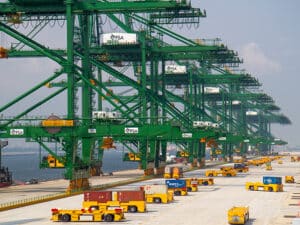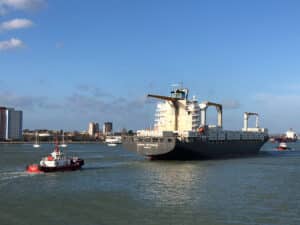
Op-Ed: Ready to take the next leap forward
Written by Heather Ervin
Erik Hånell, President and CEO, Stena Bulk
By Erik Hånell, president and CEO, Stena Bulk
If the last few years have taught tanker operators anything, it is that they need to be agile, says Erik Hånell, CEO of Stena Bulk.
It has not been a time of slow, measured market evolution. After the initial, sudden impact of the pandemic, our sector has experienced the repeated emergence of COVID variants and localized outbreaks with associated supply chain disruptions. Additionally, the prolonged conflict between Russia and Ukraine, apart from being a humanitarian disaster, is severally impacting trade and supply chains within and beyond Europe.
Legislatively, the focus for both Europe and the U.S. is increasingly on promoting domestic energy production, whether that is fossil fuels, renewable energy, or nuclear. While the world’s decreasing dependence on oil products may be gradual, the development of new energy supply chains and alternative fuels will require a rapid response from tanker operators, and those that have cultivated corporate and fleet agility will prevail. They will be ready to leap forward and grasp the opportunities that are emerging globally.
Operators that are slow to act or choose to make only modest changes to their current approach, will sink into a reactive mindset that lacks agility and runs counter to market leadership. At Stena Bulk, for example, we have prepared ourselves by ensuring excellence at the asset level, building a modern fleet of efficient tankers complemented by enough flexibility to adapt capacity and meet market demands. We are constantly evaluating opportunities to improve our current fleet, sell or recycle existing tonnage, and build the most advanced tanker designs on the market to ensure we are set for a strong future.
From a sustainability perspective, the shipping industry is likely to fully align business strategies with society’s wider decarbonization goals. There have been signs of this in the last year despite the depressed market landscape because customers have increasingly demanded sustainable shipping options regardless of the small profit margins operators have for achieving this. Having made sustainability progress despite prevailing market directions proves that a focus on excellence is a successful one for meeting customer demands.
When it comes to alternative fuels, confidence about the prospects of methanol as a low carbon fuel are gaining pace in the market, and the tanker sector has an important role to play in leading its development and scaling. In what is a crucial moment in the energy transition, technological investment and future fuel trials must not be seen as speculative and risky, but rather as progressive and commercially sensible steps against the backdrop of a radically changing maritime sector which will drive further commercial success in the future.
Digitalization is also a key part of the journey, and the power of AI to enrich data quality, enable connected workflows, and accelerate decision-making—both on ship and on shore—must be regarded as a powerful tool helping tanker operators to remain commercially and operationally agile. Better decision-making driven by digitalization is a fundamental part of navigating current tanker market volatility and is one of the few genuinely low-cost and immediate ways we ensure that we are maximizing profit and ensuring operational efficiency.




